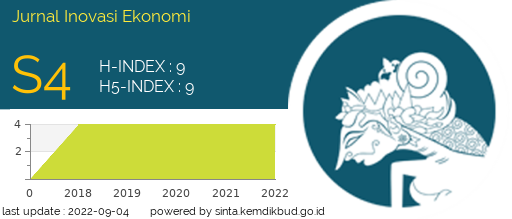Financial sector development and economic growth in Nigeria
DOI:
https://doi.org/10.22219/jiko.v9i02.22537Keywords:
Financial sector, credit, economic growth, financial developmentAbstract
This study employs the Autoregressive Distributed Lag technique (ARDL) to investigate the impact of financial sector development on economic growth in Nigeria, considering previously overlooked variables. The findings from the Bound Co-integration Test indicate a long-run relationship between financial sector development and economic growth. Specifically, credit to the core private sector, market capitalization, total savings, and monetary policy rate are identified as drivers of economic growth, while credit to the government hampers growth. The study concludes that financial sector development facilitates economic growth by mobilizing and channeling financial resources effectively to the core private sector. To further promote economic growth, the study recommends the formulation of effective policies to enhance capital market activities in mobilizing long-term idle funds. Additionally, the government should ensure the judicious utilization of credit provided by the financial sector. This study contributes to existing research by reaffirming the influence of financial development on economic growth and considering crucial variables such as credit to the core sector, credit to the government, and monetary policy rate.
Downloads
Downloads
Published
Issue
Section
License
Copyright (c) 2023 Oludayo Elijah Adekunle, Akindutire Yetunde Tonia

This work is licensed under a Creative Commons Attribution-ShareAlike 4.0 International License.








